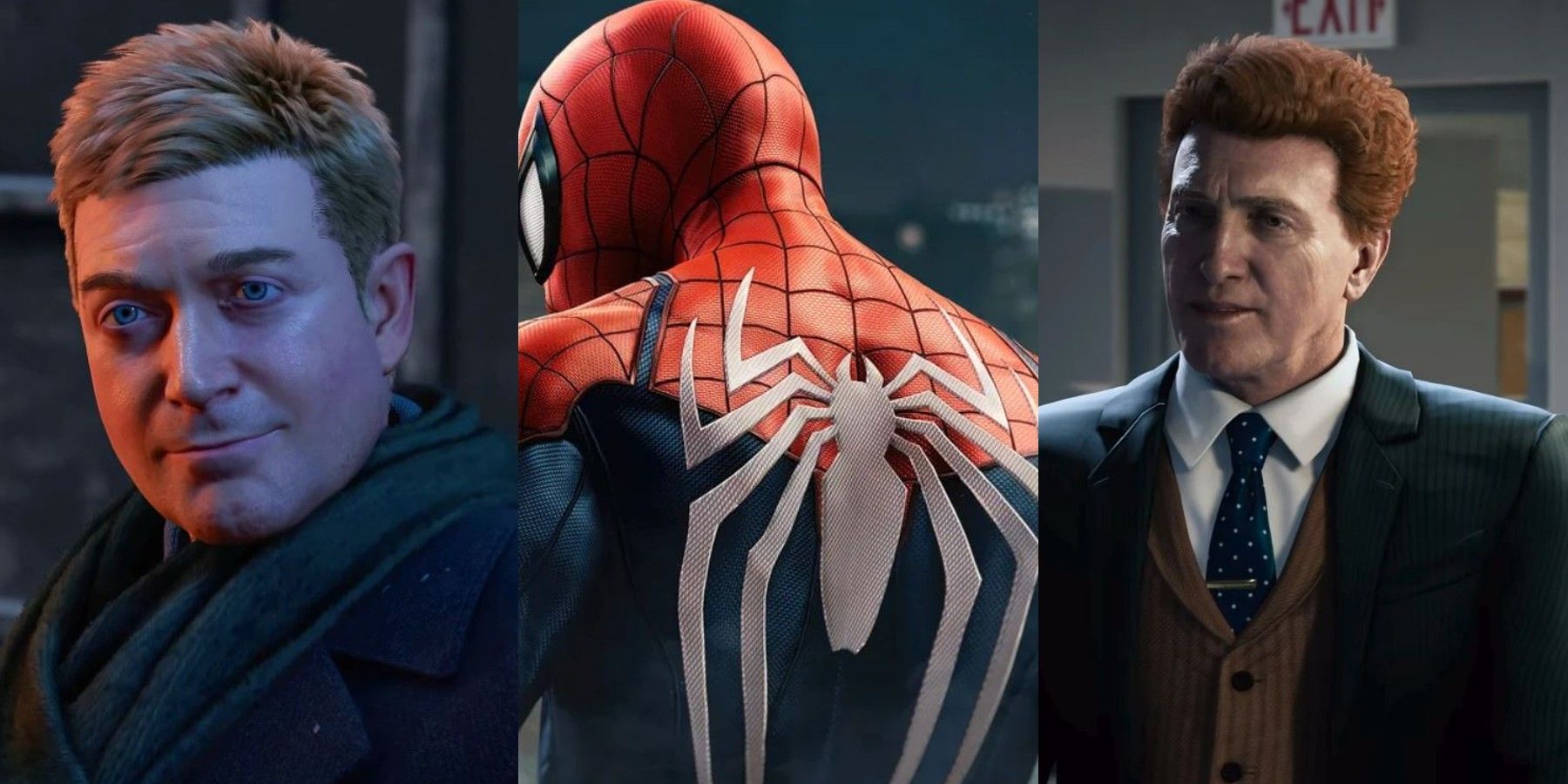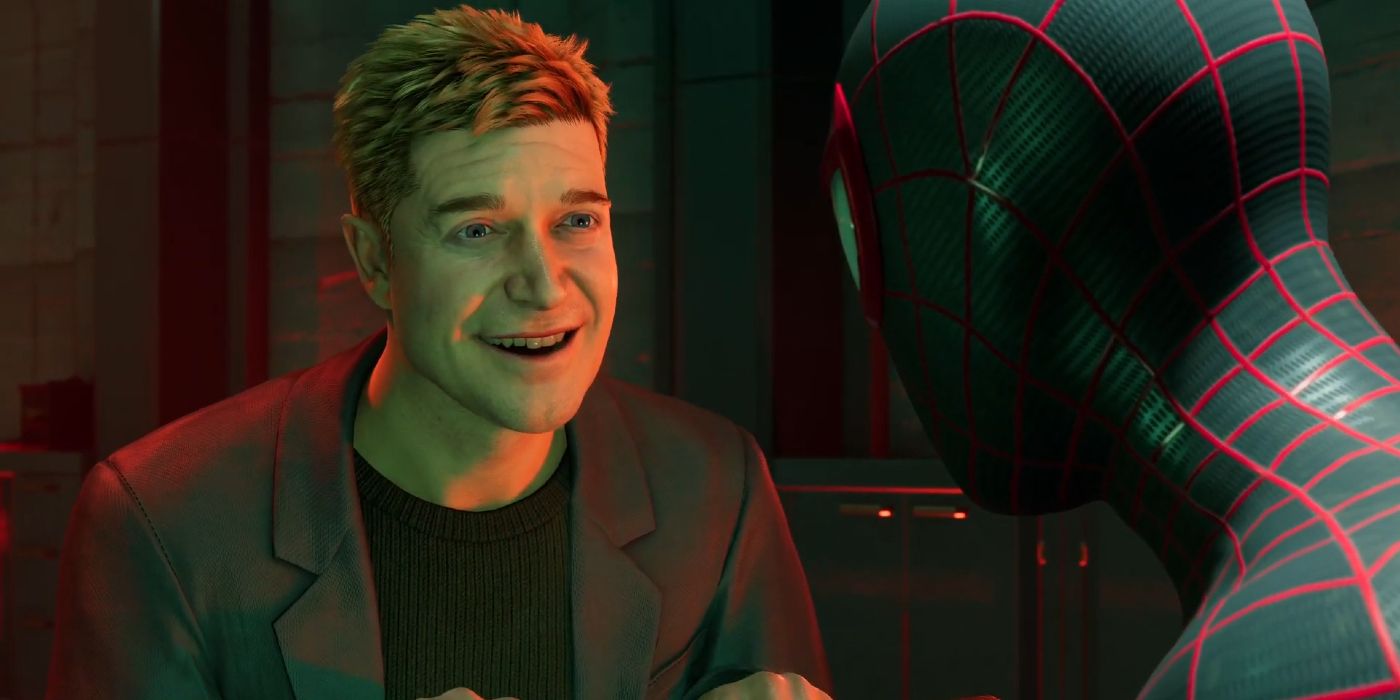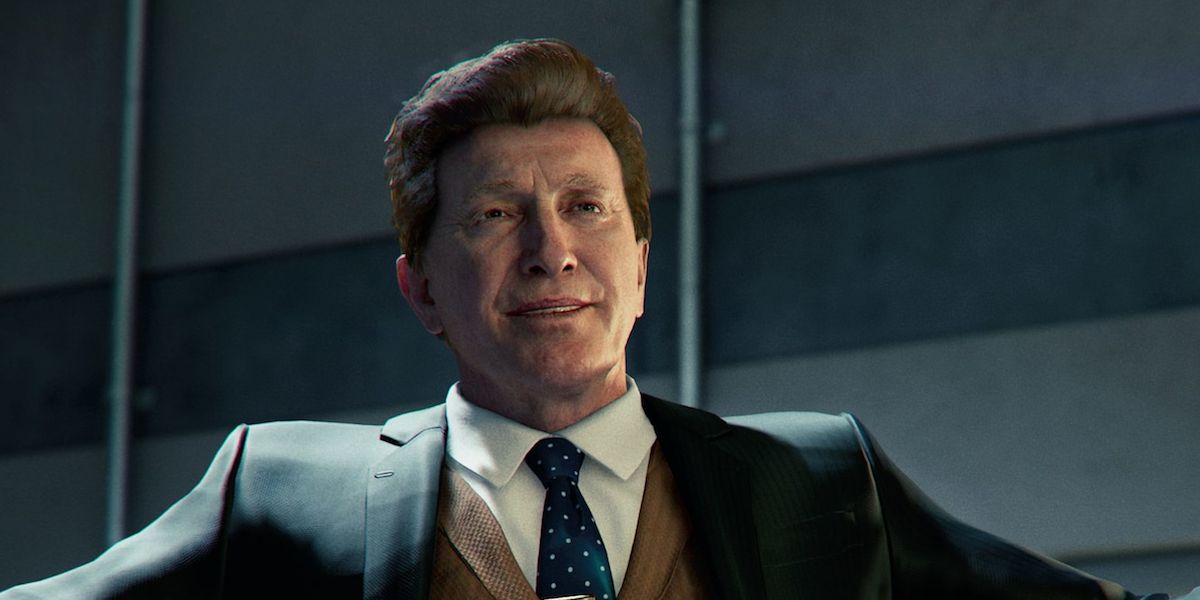Despite the overall quality of Insomniac’s games, both Marvel’s Spider-Man and Marvel's Spider-Man: Miles Morales have the same storytelling problem, as they depict Spider-Man battling to protect wealthy, corrupt business interests and politicians from those who would expose and destroy them. Peter Parker repeatedly defends Norman Osborn, the despotic mayor of New York City who was responsible for ruining numerous lives and careers to further his illegal and inhumane experiments. In the follow up game, Miles Morales similarly stands between his childhood friend Phin Mason and her plans to bring down the Roxxon Corporation and Simon Krieger, despite Krieger’s cover-ups and lies that put profit over human lives. Going into Marvel’s Spider-Man 2, Insomniac’s gallery of villains is diverse, but the developer needs to step away from the pattern of having Spider-Man acting as the unpaid defender of corrupt one-percenters and stop putting the character between the victims of corporations and the real evil masterminds.
The pattern of superhero media placing the heroes on the side of those who abuse power is widespread, and hardly unique to Insomniac’s Spider-Man games. Matt Reeves’ The Batman featured a version of Riddler who sought to expose those who misused a charity fund established by Thomas Wayne, using the Renewal Fund as a personal nest egg for criminals and elected officials alike. The Falcon and the Winter Soldier series ended with Falcon confirming that his ideals align with the Flag-Smashers, a group that supported refugees and stood against nationalism, despite depicting the group as the villains for the bulk of the show. Although Mr. Negative was not Marvel’s Spider-Man’s villain, in the end, both he and Doctor Octopus shared the same righteous anger towards Norman Osborn. Martin Li’s family died due to Osborn’s unethical human experimentation, and Otto Octavius had his career and research stolen from him by Osborn.
Just as Bruce Wayne spends most of the film pursuing Edward Nashton in The Batman, Peter Parker spends more time combating those who want to expose Osborn instead of tackling the root of the problem itself in Insomniac’s video game. The problem is even worse in Marvel’s Spider-Man: Miles Morales, where Miles defends Roxxon against The Underground gang despite being aware of the company’s malfeasance thanks to his own mother’s political campaign. True villains, characters like Norman Osborn and Simon Krieger, are ideal foils for a modern superhero vigilante. Even after the reveal of The Tinkerer’s identity in Spider-Man: Miles Morales, Miles tries to stop Phin and The Underground from blowing up a Roxxon facility. When Miles learns that Krieger’s alterations to the Nuform reactor will make that explosion destructive for all of Harlem, not just Roxxon, Phin understandably does not trust him. Miles has already lost all credibility with her by choosing to prioritize the law over ethics.
Spider-Man: Miles Morales Should Have Focused On Roxxon As The Enemy
Figures like Osborn and Krieger fit in with the history of classic comic-book villains whose wealth and influence make them untouchable. While Miles does put some effort into finding evidence that ultimately exposes Krieger, and leads to his arrest, the fact that he spends most of the game defending a company he knows to be unethical is poor storytelling. The vigilante archetype of superhero comics allows for characters to do what is right even when the law cannot. Superheroes are not simply stronger, more resilient police offers and prosecutors (despite a modder finding an unused Spider-Man PS4 Spider-Cop outfit in the game’s files). Many older superhero stories focused on organized crime figures who are above the law due to bribes and intimidation, like The Kingpin, who is arrested early in Marvel’s Spider-Man. For most audiences of superhero media, particularly in the USA, a corrupt politician like Osborn, or an unethical corporation like Roxxon, hits closer to home than a traditional crime boss figure like Wilson Fisk.
Insomniac’s games could have focused on their Spider-Men targeting the corrupt big money interests, like Oscorp and Roxxon, instead of making those takedowns incidental to their fights against the corporations’ enemies. Even while heroes like Spider-Man often agree that those who abuse power are wrong, they disagree with the methods of characters like Mr. Negative or The Tinkerer. In the case of the Marvel’s Spider-Man games, those methods include unleashing chemical weapons in a heavily populated city and blowing up a generator that could take an entire neighborhood with it. In a Spider-Man: Miles Morales deleted scene Phin urged Miles and his mother to leave Harlem due to Roxxon’s presence. While Rio Morales was battling Roxxon politically, and Phin was taking the fight directly to the legally-insulated conglomerate, Miles focused solely on stopping The Underground before he learned of Phin’s involvement. Based on what he knew about Roxxon from his mother alone, he should have been reaching out to The Underground to learn more about the group's motives.
After learning of Phin’s role as The Tinkerer, Miles’ ongoing determination to stand against her and The Underground is frustrating. He could have revealed his identity as Spider-Man and pledged to stand alongside her against Roxxon instead of infiltrating her organization and losing her respect and trust, and could have encouraged them to behave more carefully. By portraying Miles Morales as yet another hero who is more concerned with a group’s methods and legality, rather than their purpose, Insomniac perpetuated the tone-deaf superhero narrative wherein comic characters act as defenders of the status quo instead of crusaders for a better world. There are many ways Morales beats Parker in Marvel’s Spider-Man games, in terms of both character building and power set, but he was just as bad as Peter in his failure to connect with the victims of abuses of power.
Insomniac Needs To Let Spider-Man Fight True Evil, Not Protect The Status Quo
Characters like Doctor Octopus and The Tinkerer threatened to harm innocent people caught between them and their wealthy targets, but Spider-Man still could have acted as an ally for their crusades instead of an enemy. Working with the victims instead of against them would allow Spider-Man to help reign in any plans that might involve collateral damage to New York’s citizens, and fight for what is ethically right instead of what is legally allowed. The power fantasy of superhero fiction can stand for something bigger. In an era where the unethical abuse of wealth and manipulation of the law impacts more people than conventional crime, having heroes who stand first and foremost as defenders of the status quo is irresponsible. Insomniac made this mistake with Marvel’s Spider-Man and Marvel’s Spider-Man: Miles Morales' stories, but hopefully, it will course correct this problem before Spider-Man 2 or Marvel’s Wolverine are released.



